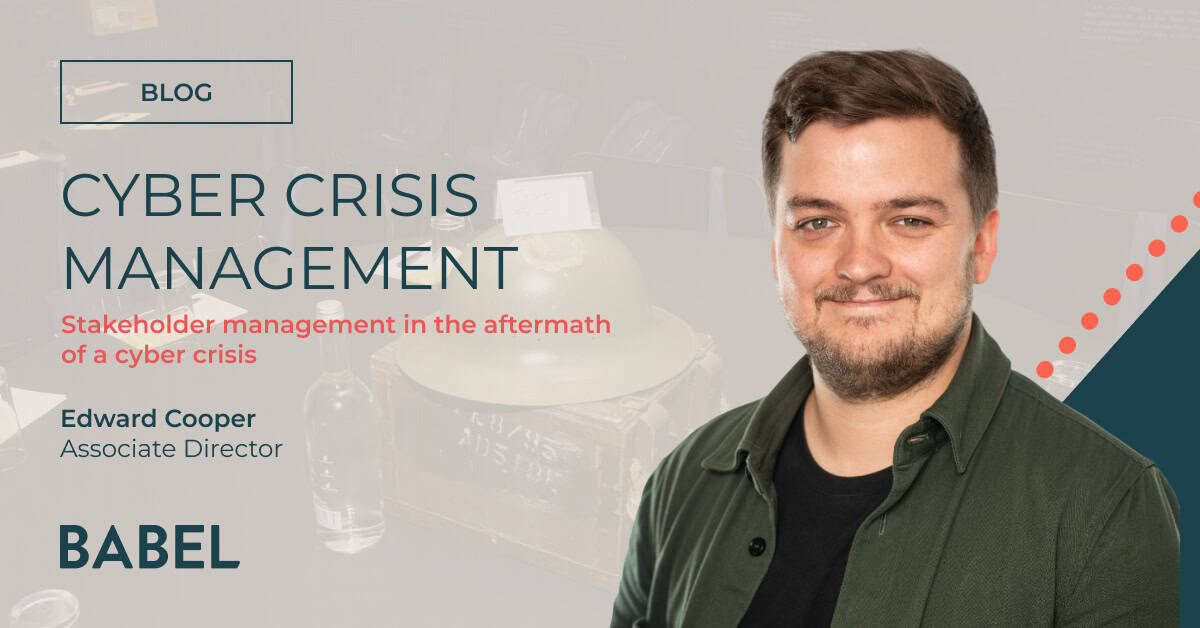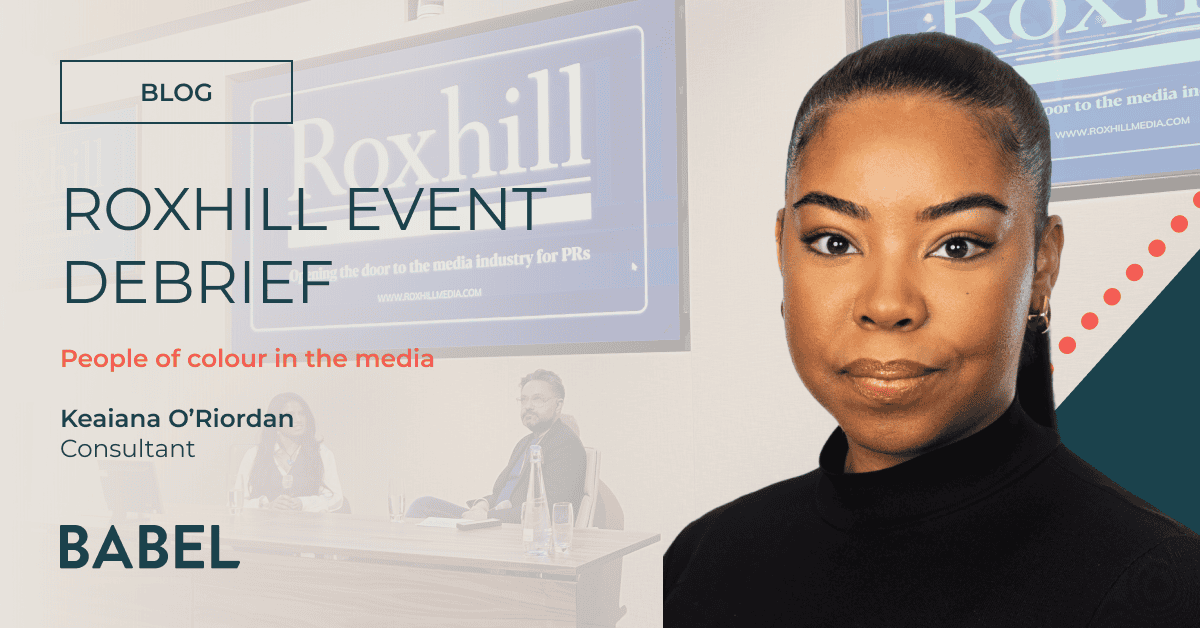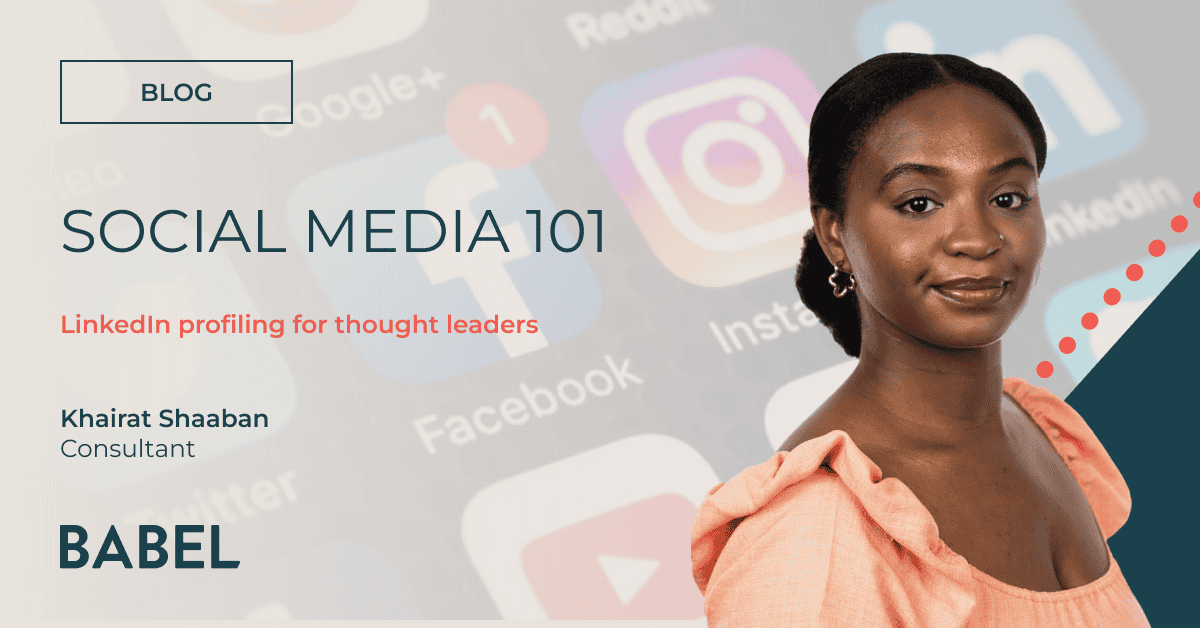
The truth about trust
In recent times, every new year seems to have begun with the declaration that our trust in institutions is changing, and for the most part we hear it has been on the decline. But in 2020, fresh questions have been asked about the research driving those conversations. It might be the only public relations IP known beyond our industry bubble, but should it be considered anything more than a clever lead-gen asset?
I was fortunate enough to be extended an invitation to the House of Lords to attend the recent PRCA Fellows’ Lunch, and as interesting as the conversations with some of the leading figures in the communications business were, it was the keynote speaker whose words were most meaningful to me.
The speaker was Ben Page, chief executive of Ipsos MORI, and while his address didn’t exclusively focus on Edelman’s research, he certainly gave it both barrels.
Page pointed to some recent research his firm has conducted, as well as historic data, which paints a slightly different picture of the current landscape.
Trust in our institutions
In the UK, our politics, and media coverage thereof, have given many cause for concern in the last few years. These are undoubtedly turbulent times for businesses and individuals, but with the results of the most recent election bringing some certainty to the horizon, things – or at least the perception of them – look to be on the up.
Some 75% of the population feel more positive about the outlook for 2020 than they did about 2019. Page’s personal view was that we are likely to see at least eight more years of Conservative government, despite them having been in power for over a decade. At the end of the day, the majority of people just want to get Brexit done and over with – the view to the contrary being influenced by small, but highly vocal polarised communities on either side of the debate.
That’s not to say that everything is fine and dandy – there are many questions to which we still require answers.
The Trust Barometer findings suggest that more than half of respondents believe that capitalism does more harm than good in the world. With big questions over productivity and the role of technology in the workplace, debates on the size of the welfare state and bold ‘solutions’ such as Universal Basic Income (UBI) are increasingly common. But is capitalism as we know it really under threat?
These are the tensions that will fuel the political climate over the next few parliaments, according to Page. Legislators will need to decide whether to really tackle some of the social issues we’re facing, or just try to muddle through. With an aging population and specific policy areas like health and social care requiring urgent attention, addressing the issues will require raising taxes to fund potential solutions.
While it may seem like we’re living through a constant crisis situation and that everything is ‘going to hell in a handcart’, stories of declining trust are simply untrue, according to Ipsos MORI’s research.
Trust vs truth
These stories are simply things we tell ourselves and others, and get swept up into media stories, says Page. They’re not backed up by data, despite what we may believe.
Having been in polling for 32 years, it’s worth noting the world has changed, he added. But while some things have moved on dramatically, some are virtually the same.
Today, 45% of the UK population think their children will be worse off than them. This figure has risen markedly in the last decade or so, sitting at just 12% before the 2008 financial cash.
In the UK, and other mature economies, there was once a perception that things got better and better as the years progressed. That trajectory is changing, and appears to be plateauing. In other markets this may differ. In rural China for instance, the famines associated with the ‘Great Leap Forward’ are well within living memory – the difference in quality of life between 1960 and today are worlds apart. If you remember your grandmother starving to death, you’re unlikely to think your children – now able to stream the latest films on their smartphones – will be worse off!
Trust in government
What may surprise some is that in the world of business and in government, there has been no meaningful change in trust here for decades. Governments have never been trusted – trust in the US government has remained largely unchanged, even with the election of Donald Trump.
The highest levels of trust in US government were under the Eisenhower administration. This period, immediately post-war, where rationing, racial segregation, and the serious threat of nuclear war were the realities of the day. Do we want to return to this world? Probably not, no!
If we look at some of the other areas professional communicators may take an interest in, questions of media and privacy, there is still little notable change.
Trust in print media has seen a steady increase over the past 10 years, despite declining circulations.
In 2020, as we discuss regulation like GDPR and whether we should have a moratorium on the use of facial recognition technology, it may surprise some to know that concerns about personal privacy are at the same level they were in 1999!
Building trust through PR and communications
Concluding his address, Page noted that as a room full of communicators we should not need telling that the last few years have demonstrated the importance of messaging and framing. Communicators have been shown to be extremely persuasive in recent times.
While some have famously claimed that people have ‘had enough of experts’, they only half hit the nail on the head.
In the Brexit debate, the remain campaign used hard facts to make their case, but had a weak story – campaigning for the status quo. The leave side, deployed ‘facts’ of sorts, but had a much stronger story – throwing off the yoke of ‘unelected bureaucrats in Brussels’ and ‘taking back control’.
We know that people are deeply irrational, but if Brexit has taught us anything it’s that to make a persuasive case you need facts. However, you also need the stories that frame them, give them context, and allow you to weave them into something tangible enough to explain to friends in the pub, or take a specific action on.
Professional communicators should not only recognise, but remember this as they seek to influence on behalf of their organisations and clients.
Building trust is long game and is about understanding emotions, demonstrating empathy, and storytelling through actions as much as communications, but the right public relations counsel can help organisations foster better relationships with their key stakeholders, giving them not only their ‘license to operate’, but to thrive commercially.
If you’re looking for a partner to help you build trust with your key stakeholders, whether they are customers or consumers, get in touch with Babel’s team of expert advisors.





